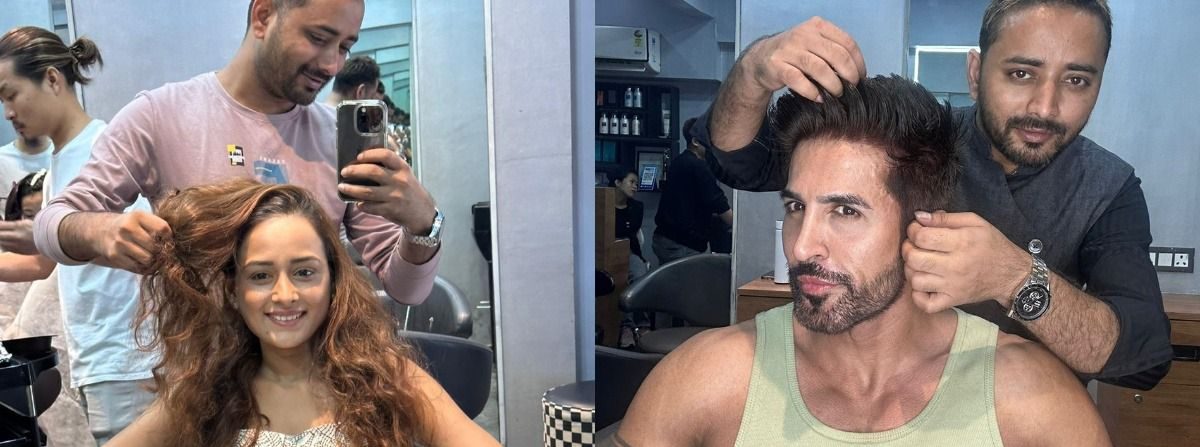Get monsoon hair care tips from hair stylist Sameer Salmani!
When it pours, there is excessive humidity in the air. The reason why taking care of your stresses as well as styling them needs to be rain proof. Hairstylist #SameerSalmani talks about the do’s and don’ts when it comes to hair care during monsoon.
“It’s crucial to modify your hair care routine during the rainy season to address the issues brought on by elevated humidity and wetness. There are five basic things that you can do to maintain healthy hair while travelling during this season,” he says.
He begins by suggesting the importance of ensuring the hair is dried well after every wash, which is also necessary to maintain a clean scalp to avoid irritation.
“As much as you can, try to avoid getting your hair wet when it rains. To prevent your hair from being directly exposed to rainwater, which can lead to frizz, limpness and damage, carry an umbrella or put on a cap,” he continues, “During the monsoon, your scalp may become oily due to the increasing humidity. Regularly shampooing your hair with a gentle, sulfate-free shampoo will help reduce greasiness and maintain a healthy scalp. Avoid, nevertheless, over-washing since this can strip.”
Sameer says that conditioning our hair is also important. “The humidity in the air can make your hair prone to frizz and tangles. To counteract this, use a good quality conditioner after every shampoo. Focus on the mid-lengths and ends to keep your hair moisturised and manageable.”
At times people often end up using excessive heat to style their hair. This is a complete no-no.
“Don’t use excessive heat styling. With the already high moisture content in the air, heat styling tools can cause more harm to your hair during the monsoon. Minimise the use of blow dryers, straighteners, and curling irons. Instead, embrace your natural hair texture or opt for heatless hairstyles,” he suggests.
He also highlights the importance of hair care to avoid fungal infections. “The damp environment during the monsoon can lead to fungal infections on the scalp. To prevent this, ensure your hair and scalp are clean and dry. Avoid tying your hair up when it’s wet, as this can create a breeding ground for fungi. If you experience any signs of infection, such as itching or dandruff, consult a dermatologist,” he adds.


